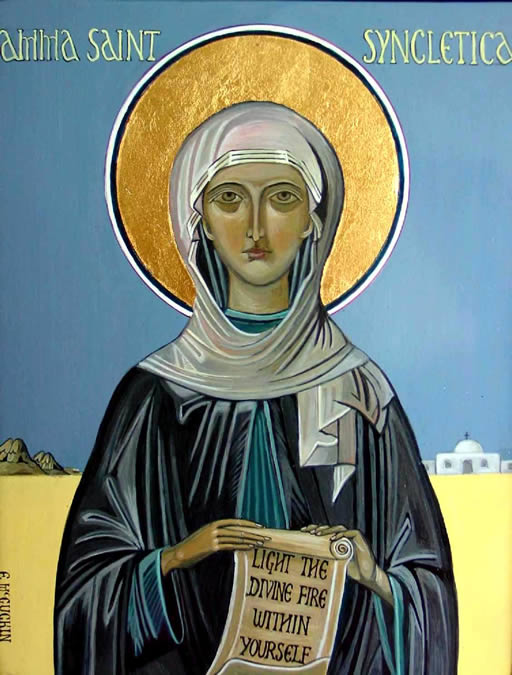 The presbyter of a church used to come to a hermit to consecrate the Eucharist for him so that he could receive it. But someone else visited the hermit and said evil things about that presbyter.
The presbyter of a church used to come to a hermit to consecrate the Eucharist for him so that he could receive it. But someone else visited the hermit and said evil things about that presbyter.The next time the presbyter came to consecrate as usual, the hermit was horrified and would not let him in. The presbyter saw it and went away.
Then the hermit heard a voice saying, "Men have taken my judgment into their own hands."
He saw a vision of a well of gold and a bucket of gold, and a rope of gold, and plenty of drinking water. He saw a leper emptying and refilling the bucket and wanted to drink but did not because it was a leper who had poured the water out.
Then a voice came and second time to him and said, "Why don't you drink this water? What does it matter who draws it? For, he only draws it and pours it out again."
Then the hermit came to himself, and understood what the vision had meant. He called the presbyter and made him consecrate the offering as before.





























